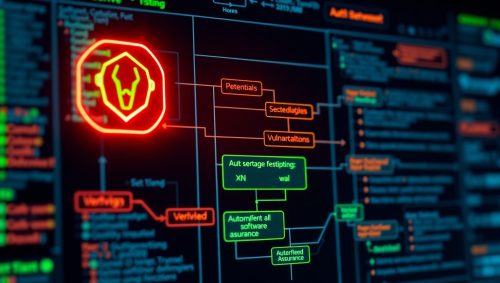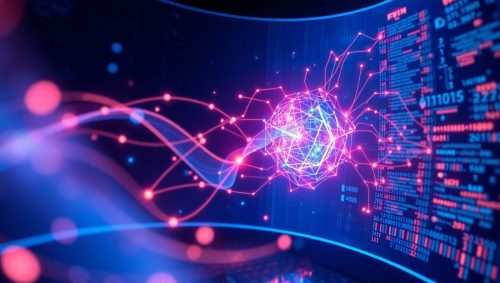The world runs on software, and the demand for faster, more reliable, and more complex applications is relentless. Traditional software development lifecycles (SDLCs), while refined over decades, often struggle to keep pace. Enter the game-changer: AI agents in software development. These aren’t just fancy chatbots; they are increasingly sophisticated systems capable of understanding context, performing tasks autonomously, and learning from feedback. From writing boilerplate code to generating complex test cases and even keeping documentation current, AI is stepping in as a powerful collaborator. Understanding how these agents work and their potential impact isn’t just forward-thinking—it’s becoming essential for survival and success in the modern digital landscape.
What Exactly Are AI Agents in Software Development?
Before diving into specifics, let’s clarify what we mean by “AI agents” in this context.
Think beyond simple scripts or macros. An AI agent in software development typically possesses characteristics like:
- Autonomy: They can operate independently to achieve specified goals without constant human intervention.
- Reactivity: They perceive their environment (e.g., the codebase, requirements, test results) and respond to changes.
- Proactivity: They can take initiative towards achieving goals, not just react.
- Goal-Orientation: They are designed to accomplish specific tasks (e.g., write a function, find bugs, document an API).
- Learning: Many advanced agents can improve their performance over time based on feedback and data.
Essentially, these agents are software entities powered by Artificial Intelligence (often leveraging Large Language Models (LLMs), machine learning, and reasoning engines) designed to perform tasks traditionally done by human developers, testers, or technical writers. They act as assistants, collaborators, or, in some nascent cases, even autonomous workers within the SDLC.
Revolutionising Coding: AI as Your Co-Pilot (and Beyond)

Coding is often seen as the core creative act of software development. AI isn’t necessarily replacing that creativity (yet), but it’s dramatically changing the workflow.
From Snippets to Solutions: AI Coding Assistants
This is the most mature application of AI agents in coding today. Tools like GitHub Copilot, Tabnine, Amazon CodeWhisperer, and AskCodi function as intelligent pair programmers.
- Code Completion & Generation: They suggest single lines or entire blocks of code based on comments, existing code context, and function names. This significantly speeds up writing boilerplate code, implementing common patterns, or even drafting complex algorithms.
- Fact: A GitHub study on Copilot found that developers using it were 55% faster at completing coding tasks compared to those who weren’t. (Source: GitHub Copilot Research) 1 – Note: While this specific study is from 2022, the trend it highlights remains relevant.
- Debugging Assistance: Some AI tools can analyze code, identify potential bugs, and even suggest fixes. They can spot patterns that might lead to errors or security vulnerabilities.
- Code Explanation & Refactoring: Stuck on a complex piece of legacy code? AI agents can often explain what it does in natural language. They can also suggest ways to refactor code for better readability, performance, or maintainability.
- Language Translation: Need to convert a Python script to JavaScript? Some AI tools can assist with translating code between different programming languages.
The Rise of Autonomous Agents: Can AI Code Independently?
The next frontier, generating significant excitement and debate, involves more autonomous AI agents. Tools like Devin AI (currently in early access) aim to take high-level prompts or issue descriptions and autonomously plan, code, debug, and deploy simple applications or features.
While impressive, these fully autonomous agents are still in their infancy. They excel at well-defined, relatively contained tasks but often struggle with ambiguity, complex system integrations, or tasks requiring deep domain knowledge not present in their training data. The dream of an AI that can build an entire enterprise application from a one-sentence description remains distant, but the progress is undeniable. These agents represent a shift from assistance to delegation for specific development tasks.
(Featured Question): How do AI agents automate coding? AI agents automate coding primarily through: * Code Generation: Suggesting or writing code snippets or functions based on context or natural language prompts. * Intelligent Code Completion: Predicting and completing lines of code more accurately than traditional tools. * Debugging: Identifying potential bugs and suggesting fixes. * Refactoring: Proposing improvements to existing code structure and quality. * Autonomous Task Completion: Newer agents aim to handle entire coding tasks based on high-level instructions.
Smarter, Faster Testing: AI Takes the Wheel

Software testing is crucial for quality but often tedious and time-consuming. AI agents are making significant inroads here, moving beyond simple script execution to more intelligent quality assurance.
Beyond Brute Force: Intelligent Test Case Generation
Traditional automated testing often relies on manually written scripts. AI can enhance this by:
- Analyzing Requirements & Code: AI can analyze user stories, specifications, and the application’s code to automatically generate relevant test cases, aiming for better coverage of edge cases and potential failure points.
- Optimizing Test Suites: AI can identify redundant tests or prioritize tests based on code changes or risk analysis, making the testing process more efficient.
Self-Healing Tests and Anomaly Detection
One major pain point in automated testing is test fragility – tests breaking due to minor UI or code changes.
- Self-Healing: AI agents can identify why a test failed (e.g., a button ID changed) and automatically update the test script to reflect the change, reducing maintenance overhead.
- Anomaly Detection: AI can monitor application behavior during testing or even in production, flagging unusual performance metrics, error rates, or usage patterns that might indicate subtle bugs missed by traditional tests.
Visual Testing and UI Validation
Ensuring visual consistency across browsers and devices is challenging. AI-powered visual testing tools can capture screenshots of application UIs and compare them against baseline images, automatically flagging unintended visual regressions pixel by pixel or using layout analysis.
(Featured Question): Can AI automate software testing? Yes, AI significantly enhances test automation. It automates test case generation based on requirements or code, optimizes test suites, enables self-healing tests that adapt to UI changes, detects anomalies indicating bugs, and performs sophisticated visual testing to catch UI regressions.
Documentation: Eliminatining the boring work
Good documentation is vital but often neglected or outdated due to the effort involved. AI agents offer a promising solution to this perennial problem.
Generating Documentation from Code
Keeping documentation synchronized with rapidly evolving code is a major challenge. AI can help by:
- Analyzing Code Structure & Comments: AI agents can parse source code, analyze function signatures, parameters, return types, and even interpret well-written code comments (like docstrings) to automatically generate technical documentation, such as API references or code summaries.
- Creating Flow Explanations: Some tools can analyze code execution paths to generate diagrams or natural language explanations of how different modules or functions interact.
Keeping Documentation Up-to-Date
Perhaps even more valuable than initial generation is maintenance.
- Detecting Code Changes: AI agents can monitor code repositories. When a function signature changes, or a new feature is added, the AI can flag the corresponding documentation section as outdated and even suggest updates.
- Ensuring Consistency: AI can help maintain a consistent style, tone, and terminology across large documentation sets.
(Featured Question): How does AI help with documentation? AI helps with documentation by: * Auto-generating documentation (like API references or code summaries) directly from source code and comments. * Explaining code flow and module interactions in natural language. * Detecting code changes and flagging related documentation that needs updating. * Suggesting updates to keep documentation synchronized with the code. * Maintaining consistency in style and terminology.
The Future is Now (and Getting Smarter): What’s Next?

The integration of AI agents in software development is accelerating. We can expect to see:
- Increased Autonomy: Agents capable of handling more complex, end-to-end tasks with less human guidance.
- Deeper SDLC Integration: AI woven more tightly into every phase, from requirements analysis and design to deployment and monitoring (AI for DevOps / AIOps).
- Specialized Agents: AI tools becoming highly specialized for specific domains (e.g., game development, embedded systems, data science).
- Hyper-Personalization: AI agents adapting to individual developer preferences, coding styles, and project contexts.
- Collaborative AI Teams: Scenarios where multiple specialized AI agents collaborate, potentially alongside human developers, to build software.
Conclusion: Partnering with AI for Smarter Development
AI agents in software development are no longer science fiction; they are practical tools transforming how we build, test, and document software. By automating mundane tasks, enhancing code quality, and accelerating timelines, AI offers a pathway to unprecedented efficiency and innovation. While challenges around accuracy, security, and integration remain, the trajectory is clear: AI will become an increasingly integral part of the software development landscape.
The key is not to fear replacement but to embrace collaboration. By learning to effectively leverage these intelligent agents, development teams can free themselves to focus on the creative, strategic, and complex aspects of software engineering, ultimately building better software, faster.
Frequently Asked Questions (FAQs)
Q1: What are AI agents in software development? A: AI agents in software development are AI-powered systems designed to perform tasks within the software development lifecycle (SDLC) with some degree of autonomy. They leverage technologies like machine learning and large language models to assist with or automate tasks such as coding, testing, debugging, and documentation.
Q2: How do AI agents automate coding? A: They automate coding through features like intelligent code completion, generating code snippets or entire functions based on natural language prompts or context, assisting with debugging by identifying potential errors and suggesting fixes, and helping refactor existing code for better quality. Advanced agents aim to handle complete coding tasks based on high-level requirements.
Q3: Can AI fully automate software testing? A: While AI significantly enhances test automation, it doesn’t fully replace human testers yet. AI excels at generating test cases, optimizing test suites, making tests self-healing (adapting to minor changes), detecting anomalies, and performing visual checks. However, exploratory testing, usability testing, and complex scenario validation still benefit greatly from human intuition and expertise.
Q4: What are the main benefits of using AI agents in the SDLC? A: Key benefits include increased developer productivity and speed, improved code quality through bug detection and better patterns, reduced development costs, enhanced developer experience by automating tedious tasks, better consistency in code and documentation, and accelerated learning for developers.
Q5: Will AI agents replace software developers? A: Currently, AI agents primarily act as powerful assistants or collaborators, augmenting developer capabilities rather than replacing them. They handle repetitive or time-consuming tasks, freeing up developers for complex problem-solving, system design, and creative work. While the role of a developer is evolving, the need for human oversight, critical thinking, and domain expertise remains crucial. The future points towards human-AI collaboration.

